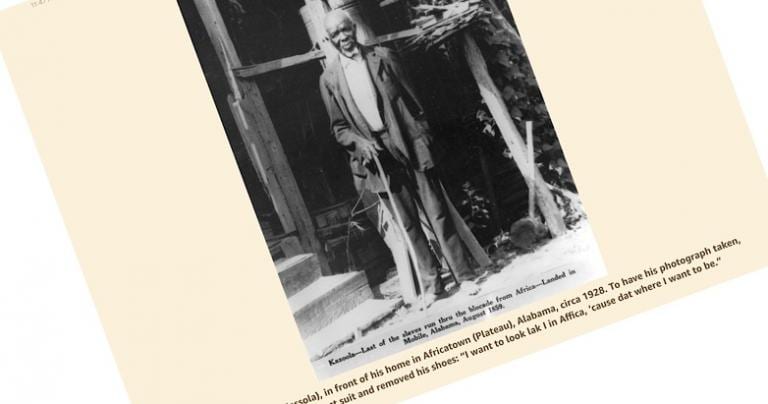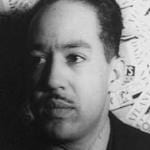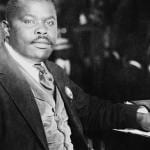 History refuses to fit any simple minded ideological storage boxes: people neatly separated into heroes, villains.
History refuses to fit any simple minded ideological storage boxes: people neatly separated into heroes, villains.
History does show us good and evil: the slave trade in the Atlantic was evil, but people are always more complicated than lazy judgments. We must let the witnesses of the past speak and accept what they said and did as what they said and did.
The Bias of My Perspective: Start With What We Have
I think Christianity is true: there is a God and God revealed Himself in Jesus Christ. Even if this is true, I must not force history to confirm this truth by forcing the words and works of Christians into what I wish were the case. When I go to Greece, much beauty and goodness has been created by Christians, but one finds much that is pre-Christian that is incorporated.
That’s true and it is beautiful. All truth, goodness, and beauty is God’s and His church finds a place for all of us and all of what is good in what we do. I have known fundamentalists who shuddered at the mosaic of practices of actual Christians. They could see nothing good about any influence from any other culture or belief system: as if we did not owe our existence to Judaism, our language to the Greeks, and much that is beautiful to cultures that chose to join us all over the world.
Just as dangerous is the European secularism that destroyed ancient churches in Greece to get to the “real Greece” of Plato and the classics. I love Plato, but destroying Byzantium to get to Olympus is barbaric attached to bias. The not-very-interested in Christianity bias of academics happens when the text of Beowulf, Christian as we have it, is strip mined for the “really interesting” pagan sources.
I have no doubt that there are interesting pagan sources and we should study them and acknowledge them, yet the text we have is Christian. There is no other text and we do not honor the beauty of the pagan past by ignoring the greatness of the document we have as we have it. The Christian fundamentalist who does not wish to see the pre-Christian roots of Beowulf is kidding himself, but so is the secular scholar who forgets the text he has for the text he wishes he had.
One of the best things about eyewitness testimony is that it explodes so many comfortable myths.
Barracoon
Last year finally saw the publication of a brilliant book, the preservation of the oral history of the last American enslaved in Africa and sold in America. The anthropologist and novelist Zora Neale Hurston let this man, Cudjo Lewis (born Oluale Kossola), speak for himself. The book could find no publisher because it transgressed many biases. Depression America deep in thrall to Jim Crow did not wish to hear the authentic voice of an enslaved man. He had no wish to return to slave days and was happy to be free.
Given the Jim Crow times, there also was a hesitation in publishing memories that showed African nations as part of the slave trade: a brutal part. This a complicated history that was easy for racists to abuse and so there was a strong temptation to not say too much about it. Cudjo Lewis refused to fit neat narratives, not longing for Massa, not a Harlam Renaissance figure, in a book that transcribed his dialectic. As the introduction says:
Reading Barracoon, one understands immediately the problem many black people, years ago, especially black intellectuals and political leaders, had with it. It resolutely records the atrocities African peoples inflicted on each other, long before shackled Africans, traumatized, ill, disoriented, starved, arrived on ships as “black cargo” in the hellish West.
Hurston was honest enough to publish what she got: a real man who survived horrific evils and hard times that only started with the Atlantic slave trade. He grew to early manhood in Africa and longed to the end for his African home. This brave man made a life in America, but he was never at home in America.
Simultaneously he is a founding member of the first church in the town the African diaspora built. He longed for Africa, he rejected many American ways, but he also was a faithful member of the Church (as millions of Africans were and are).
Hurston may misunderstand one passage where Lewis talks about the loss of a child:
“We Christian people now, so we put our baby in de coffin and dey take her in de church, and everybody come look down in her face. Dey sing, ‘Shall We Meet Beyond De River.’ I been a member of de church a long time now, and I know de words of de song wid my mouth, but my heart it doan know dat. Derefo’ I sing inside me, ‘O todo ah wah n-law yah-lee, owrran k-nee ra ra k-nee ro ro.’
Just so.
He is a Christian and an African. He learned songs from his mother, heart songs, and he returned to them when in grief. This is natural. I am a convert to Orthodox Christianity and love the hymnody with all my mind, but when I face peril or death I sing the songs of my West Virginia childhood: The Restitution Chorus may not be doctrinally sound (or it may be), but when my heart sings sometimes it returns to the “garden alone, when the dew is still on the roses.”
Huston’s reaction to his religion is like most of the commentary I have read. She digs beyond his Christianity, as if it did not interest her, looking for some “pure” African spirituality that is his real view:
The only man on earth who has in his heart the memory of his African home; the horrors of a slave raid; the barracoon; the Lenten tones of slavery; and who has sixty-seven years of freedom in a foreign land behind him. How does one sleep with such memories beneath the pillow? How does a pagan live with a Christian God? How has the Nigerian “heathen” borne up under the process of civilization? I was sent to ask.
Yet Cudjo or Kossola was not a pagan by his own confession. He built a Baptist church, the first in his town, and he served it as sexton to the end of his life. He says to Hurston (in the plainest statement we get on this religious belief):
“First, I want to ask you how you feel today?” Another muted silence. Then he said, “I thank God I on prayin’ groun’ and in a Bible country.” “But didn’t you have a God back in Africa?” I asked him. His head dropped between his hands and the tears sprung fresh. Seeing the anguish in his face, I regretted that I had come to worry this captive in a strange land. He read my face and said, “Excusee me I cry. I can’t help it when I hear de name call. Oh, Lor’. I no see Afficky soil no mo’!” Another long silence. Then, “How come you astee me ain’ we had no God back dere in Afficky?” “Because you said ‘thank God you were on praying ground and in a Bible country.’” “Yeah, in Afficky we always know dere was a God; he name Alahua, but po’ Affickans we cain readee de Bible, so we doan know God got a Son. We ain’ ignant—we jes doan know. Nobody doan tell us ’bout Adam eatee de apple, we didn’t know de seven seals was sealee ’gainst us. Our parents doan tell us dat. Dey didn’t tell us ’bout de first days. No, dass a right. We jes doan know. So dat whut you come astee me?”
This is a man that loves his African roots, home, and the ideas that shaped him, but also loves Christianity. Just as he calls for a medical doctor (usually to no avail), so he calls on the name of the Lord. He has gained new knowledge, a friend, and tools without giving up any (or much) of his roots in Africa. Anyone familiar with Orthodox, Catholic, or Pentecostal religious practice historically knows this is normal.
Now if I was determined to see my brother in Christ Kossola as merely Christian, I would have to ignore how Kossola returns, as many of us do, to the childhood words and patterns in the face of great grief. He formed, as Orthodox Christians should, an African church for the African diaspora (see the Aleut Orthodox or the Greek Orthodox in America). He also recalls and practices the folkways of Africa.
Good.
Most seem perfectly compatible with Christianity, more truth that enriches the faith. His parables, some purely Biblical and some set in Africa (from his childhood?) are wise. Just as the Proverbs in the Bible use African wisdom from Egypt, so Kossola can use African wisdom from his people group. Brother Kossola has reverence for his ancestors, so do I. If a person cannot see ancestral reverence as compatible with mainstream Christianity, then he is a mere iconoclast and Christians have long rejected that error.
Were all his practices “Orthodox?” That is a complicated question for any community new to Christianity and answers vary. This much is sure, Cudjo/Kossola has grasped the Christian ethic of love. When a man kills his son, then gets religion, he comments:
“De man dat killee my boy, he de paster of Hay Chapel in Plateau today. I try forgive him. But Cudjo think that now he got religion, he ought to come and let me know his heart done change and beg Cudjo pardon for killin’ my son. “It only nine year since my girl die. Look lak I still hear de bell toll for her, when it toll again for my Fish-ee-ton. My po’ Affican boy dat doan never see Afficky soil.”
If there is one theme that the African, the Christian, the exile observering the injustices of America has, it is restitution. He is given nothing for his five years of slavery. He is given nothing for the accident caused by a careless railroad that keeps him from work. His children are murdered by Jim Crow and there is nothing. Cudjo the Christian stands ready to forgive, but nobody asks or bears the fruit of repentance.
I ask for the prayers of my brother in Christ Oluale Kossola, knowing as a Baptist he may not have wished them! May his soul and the souls of all the faithfully departed Rest In Peace.












